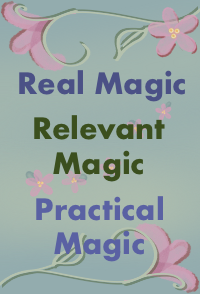Why Many Authors Became Impoverished,
Why Ebooks Are So Cheap,
and Why Good Books Are Harder to Find:
A History
When e-books first started, many publishers tried to make poverty-level royalties the norm for e-books, by attempting to strong-arm authors into accepting dismal royalty rates.
Publishers’ tactics worked for several reasons. This was happening right after 9/11, when our economy had tanked. Though professional authors objected to the rates, many other writers hoping to become professionals accepted the royalties, erroneously thinking it was a steppingstone to better rates. They unknowingly helped make poverty-level royalties the norm. They hurt themselves and their fellow writers.
Or, they were folks who’d lost non-writing jobs due to the economy tanking and, desperate to feed the family, accepted subsistence pay as writers.
One consequence of the abysmal pay is that investigative journalism was squelched. Investigation, composition, and the rest of the labor that makes good journalism requires full-time work. You don’t have time for that if your nine-to-five is an entirely other job.The same goes for in-depth development of material in any field of writing.
Some people still manage in-depth, informed writing. Since they’re one of the few who remain able to work full-time as a writer, or they work part-time over the years on one project, not as much solid material is published nowadays.
The plethora of information that started to flood the Internet around 2002 often buried the in-depth, excellent material, making it hard to find. This lowered sales for good books, making it all the harder to earn a living as a committed author.
Also, the publishing industry pushed hard to make most e-books cost only a few dollars. After 9/11, many consumers had little expendable money for books. Low prices did not hurt publishers and sellers, who worked in collusion to ensure it was the author who took the hit for the low prices, via bad royalty rates and other unfair deals. Professional authors plummeted into poverty.
The publishing industry in those days was like any other industry; there was a handful of people earning crazily high, and the rest were middle-class and poverty-level workers. As always, really high earners mostly remained untouched.
The publishing industry hid that most pro-writers were just getting by, trying to earn a living for their family and working 24-7 to do it.
The industry’s spreading the misconception that writers live high on the hog destroyed public sympathy for writers getting ripped off. Statistics show that today most professional writers live at poverty level.
Prior to e-books, best-selling authors might not break even on their books. Current e-book prices will definitely not let most writers break even on their books!
I may not break even, though I self-publish. But I do better than if I let a corporation stomp on me. And I have creative independence, so my books can truly serve the reader.
Support independent authors, not media corporations. It’s the only way to foster quality work and not miss out on important texts. Below is a link to my most recent book, completely independent of the corporate world. I self-published, do not sell this book on Amazon, and fulfill orders myself. I did not use a corporation that self-publishes books.
Most important, the book is high-quality work, giving you more value than twenty typical texts. It’s an important project instead of ones hastily thrown together. It truly helps you be happy, effective, and successful, instead of just a bunch of promo copy that says so.
You’re spared the cost of junk.
You’re spared junk that hurts your heart with disappointment and dead ends.
This is an authentic text that will live in your heart always, gently and lovingly empowering you. Buy it here: http://stardrenched.com/2017/02/28/baba-yagas-apprentice/




